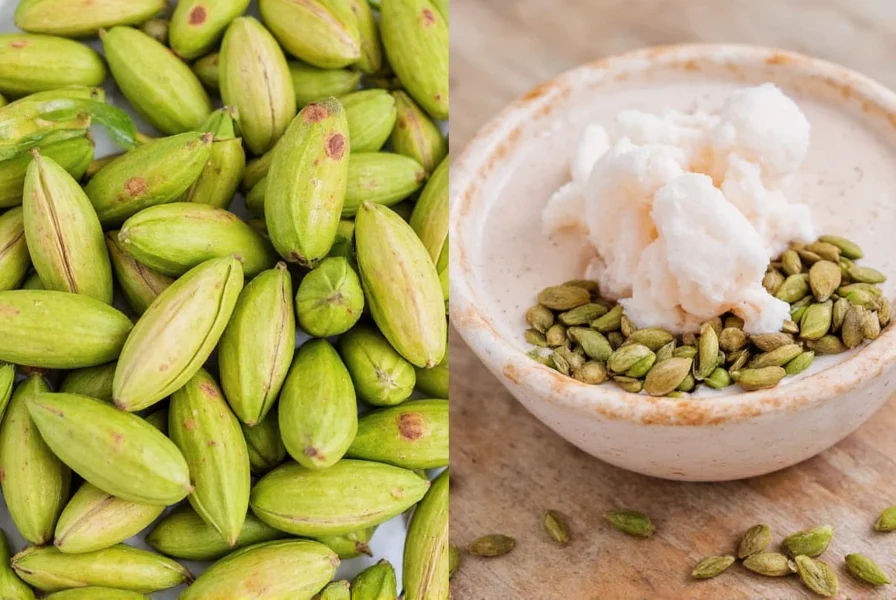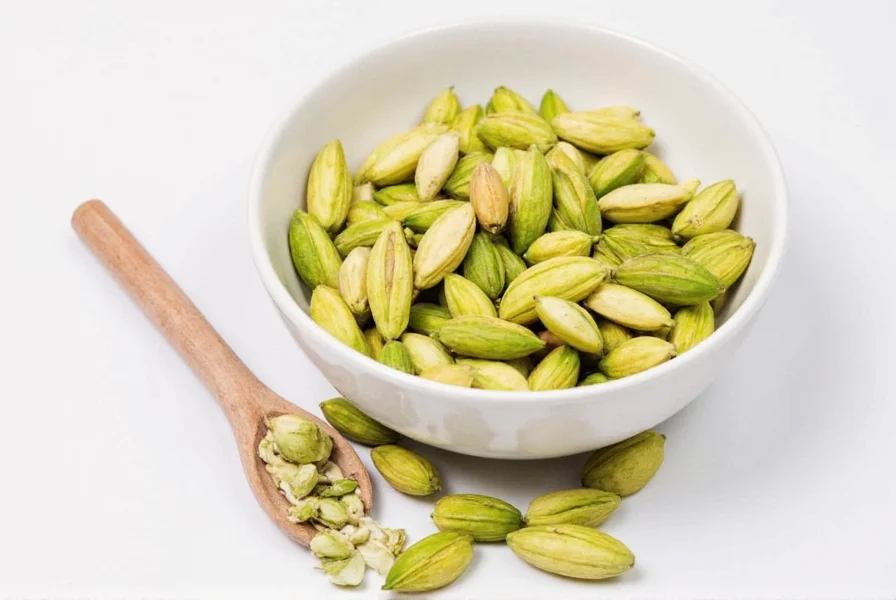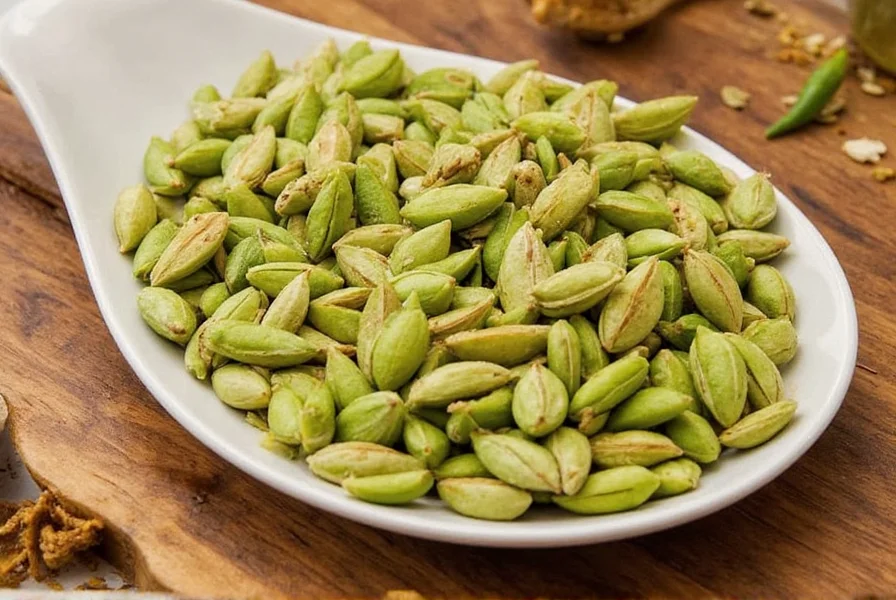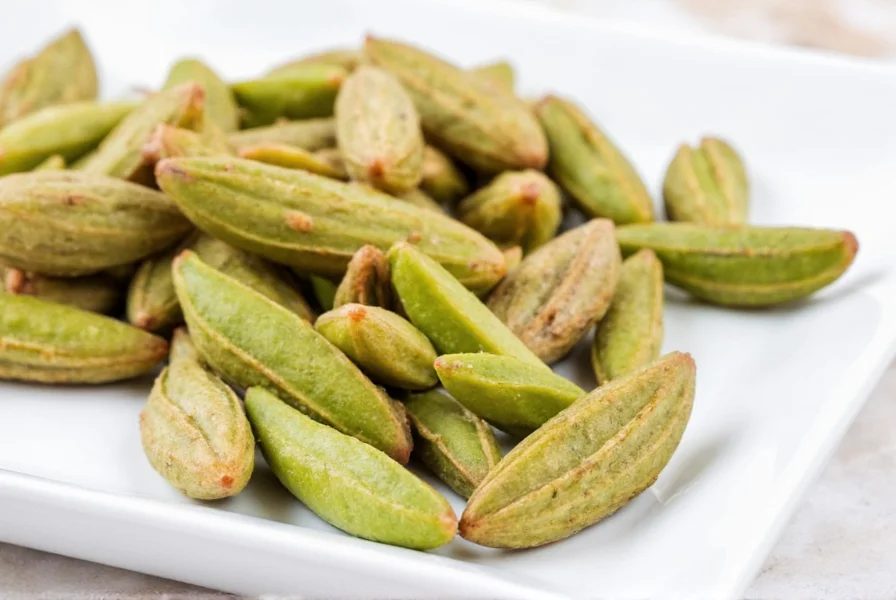Before we dive in, it's important to clarify: "Cardamomum" is a common misspelling of "cardamom," the correct name of this spice. There is no botanical term "Cardamomum" – it's simply a frequent error. In this guide, we'll use the correct term "cardamom" throughout.
Table of Contents
- Introduction: Why Cardamom Deserves a Spotlight
- What Is Cardamom?
- The Two Main Varieties: Green vs. Black Cardamom
- Health Benefits: More Than Just a Pretty Smell
- Top 10 Practical Tips for Cooking with Cardamom
- Buying Guide: How to Choose the Best Cardamom
- Where to Use Cardamom in Your Kitchen
- Frequently Asked Questions
- Fun Facts and Trivia
- Conclusion: Embrace the Magic of Cardamom
Introduction: Why Cardamom Deserves a Spotlight
Spice up your life — literally! Among the royalty of spices, cardamom reigns supreme with its exotic aroma, intense flavor, and centuries-old legacy. Known as the "Queen of Spices," cardamom is more than just a pantry staple in South Asia or the Middle East — it's a global sensation that's slowly making its way into Western kitchens.

Whether you're baking a Scandinavian cake, brewing a spiced chai, or crafting a savory biryani, this versatile pod delivers depth, warmth, and elegance. So, let's take a journey through the world of cardamom — from its history to its modern-day magic — and uncover how you can use it like a pro!
What Is Cardamom?
Cardamom comes from the seeds of plants in the Zingiberaceae (ginger) family. There are two main types used in cooking: green cardamom (Elettaria cardamomum) and black cardamom (Amomum subulatum). Both belong to the broader genus Cardamomum, which gives us the keyword we're exploring today.
Native to India and Sri Lanka, cardamom has been traded for thousands of years. It was even found in the tombs of ancient Egypt, where it was used for embalming and oral hygiene. Today, it's one of the most expensive spices by weight, second only to saffron and vanilla.
The Two Main Varieties: Green vs. Black Cardamom
| Characteristic | Green Cardamom | Black Cardamom |
|---|---|---|
| Scientific Name | Elettaria cardamomum | Amomum subulatum |
| Aroma | Sweet, floral, citrusy | Smoky, earthy, camphor-like |
| Taste | Fragrant, warm, slightly minty | Pungent, smoky, bold |
| Common Uses | Desserts, chai tea, baked goods, rice dishes | Curries, stews, meat dishes |
| Price per Ounce | $5–$10+ | $1–$3 |

Health Benefits: More Than Just a Pretty Smell
Beyond its culinary charm, cardamom boasts an array of potential health benefits backed by science and tradition:
- Antioxidant Powerhouse: Packed with antioxidants that fight oxidative stress and support cellular health.
- Anti-inflammatory Properties: May help reduce inflammation and soothe digestive discomfort.
- Breath Freshener: Chewing cardamom pods is a common remedy for bad breath in many cultures.
- Heart Health: Some studies suggest cardamom may lower blood pressure and improve circulation.
- Metabolic Boost: Could aid digestion and stimulate metabolism when consumed regularly.

Top 10 Practical Tips for Cooking with Cardamom
- Always Crush or Grind Fresh Pods: Whole pods have concentrated flavor, but grinding them right before use releases the most aromatic oils.
- Add at the Right Time: For best results, add cardamom early in long-cooked dishes, but near the end in quick sautés or baked goods.
- Use It in Coffee: Sprinkle a pinch into your coffee grounds before brewing for a unique twist.
- Enhance Baked Goods: Mix ground cardamom into cakes, cookies, muffins, or sweet breads — especially when paired with cinnamon or nutmeg.
- Mix into Rice Dishes: Try it in pilaf, biryani, or coconut rice for an aromatic boost.
- Make Your Own Chai: Boil whole pods with milk, tea leaves, ginger, and sugar for an authentic Indian chai experience.
- Infuse Sauces and Curries: Add crushed pods to tomato-based sauces or creamy gravies for a surprising depth of flavor.
- Pair with Citrus: Combine cardamom with orange or lemon zest for desserts that sing with brightness.
- Experiment with Meat Rubs: Blend cardamom with cumin, coriander, and pepper for a killer spice rub on lamb or chicken.
- Create DIY Spiced Sugar: Infuse sugar with cardamom pods in a jar for easy use in drinks and pastries.
Buying Guide: How to Choose the Best Cardamom
When it comes to buying cardamom, quality matters. Here's what to look for and why:
Whole Pods vs. Ground Cardamom
- Whole Pods: Fresher and more aromatic; ideal for infusing dishes or grinding yourself.
- Ground: More convenient but loses potency quickly; best bought in small quantities.
Brand Comparison Table
| Product | Type | Features | Best For | Occasion |
|---|---|---|---|---|
| Spice Garden Organic Cardamom Pods | Whole | Organic, fair trade, sustainably sourced | Traditional recipes, homemade chai | Daily cooking, special occasions |
| Simply Organic Cardamom Powder | Ground | Pure, no additives, certified organic | Baking, smoothies, quick meals | Busy cooks, beginners |
| Viva Naturals Cardamom Seed Pack | Seeds | Non-irradiated, raw, high potency | Custom grinding, wellness teas | DIY enthusiasts, herbalists |

Where to Use Cardamom in Your Kitchen
Cardamom plays well with both sweet and savory dishes. Here are some of our favorite applications:
- Desserts: Swedish cardamom buns, carrot cake, rice pudding
- Beverages: Turkish coffee, Indian chai, masala chai lattes
- Rice & Grains: Saffron rice, lentils, millet dishes
- Curries & Stews: Rogan josh, korma, lamb shank stew
- Breakfast: Overnight oats, granola, yogurt bowls
Frequently Asked Questions About Cardamom
What is cardamomum, and is it the same as cardamom?
"Cardamomum" is a common misspelling of "cardamom." The correct term is cardamom, which refers to spices from the genera Elettaria (green cardamom) and Amomum (black cardamom). There is no botanical genus called "Cardamomum," though this misspelling appears in some informal contexts.
What are the main types of cardamom used in cooking?
The two primary varieties are green cardamom (Elettaria cardamomum), which has a sweet, floral aroma, and black cardamom (Amomum subulatum), which has a smoky, earthy flavor. Green cardamom is more common in baking and sweet dishes, while black cardamom works better in savory preparations.
How should I store cardamom to maintain its flavor?
Store whole cardamom pods in an airtight container away from light and heat. They'll stay fresh for up to a year. Ground cardamom loses potency faster and should be used within 6 months. For maximum flavor, buy whole pods and grind them as needed rather than purchasing pre-ground powder.
Can I substitute cardamom in recipes if I don't have it?
While no substitute perfectly replicates cardamom's unique flavor, you can try a mix of cinnamon, nutmeg, and a pinch of cloves for sweet dishes. For savory applications, a combination of cumin and coriander might work. However, these are approximations - cardamom has a distinctive flavor profile that's hard to duplicate exactly.
Why is cardamom so expensive compared to other spices?
Cardamom is labor-intensive to cultivate and harvest. The plants require specific growing conditions, and the pods must be hand-picked when just ripe. It's one of the most expensive spices by weight, second only to saffron and vanilla. Green cardamom typically costs $5-$10+ per ounce, while black cardamom is more affordable at $1-$3 per ounce.
What are the health benefits of cardamom?
Cardamom contains antioxidants that fight oxidative stress, has anti-inflammatory properties that may soothe digestive discomfort, can freshen breath when chewed, and some studies suggest it may support heart health by lowering blood pressure. It's also believed to aid digestion and stimulate metabolism when consumed regularly.
Fun Facts and Trivia
- Cardamom was once so valuable it was considered "liquid gold" in ancient trade routes.
- In Arabic countries, cardamom is often served with dates during Ramadan.
- The Vikings brought cardamom back to Scandinavia from their travels in the Middle East.
- Guatemala is now the largest exporter of green cardamom in the world.
- Cardamom is sometimes used in perfumes due to its powerful, enduring fragrance.
Conclusion: Embrace the Magic of Cardamom
Whether you're a seasoned chef or a curious home cook, cardamom opens the door to a world of flavor and wellness. From its rich history to its modern-day versatility, this humble pod punches far above its size.
Now that you've got the ultimate list of tips and tricks, don't be afraid to experiment. Roast it, grind it, infuse it, bake with it — there's no wrong way to enjoy the queen of spices. Make room in your spice rack for cardamom, because once you go fragrant, there's no going back!










 浙公网安备
33010002000092号
浙公网安备
33010002000092号 浙B2-20120091-4
浙B2-20120091-4